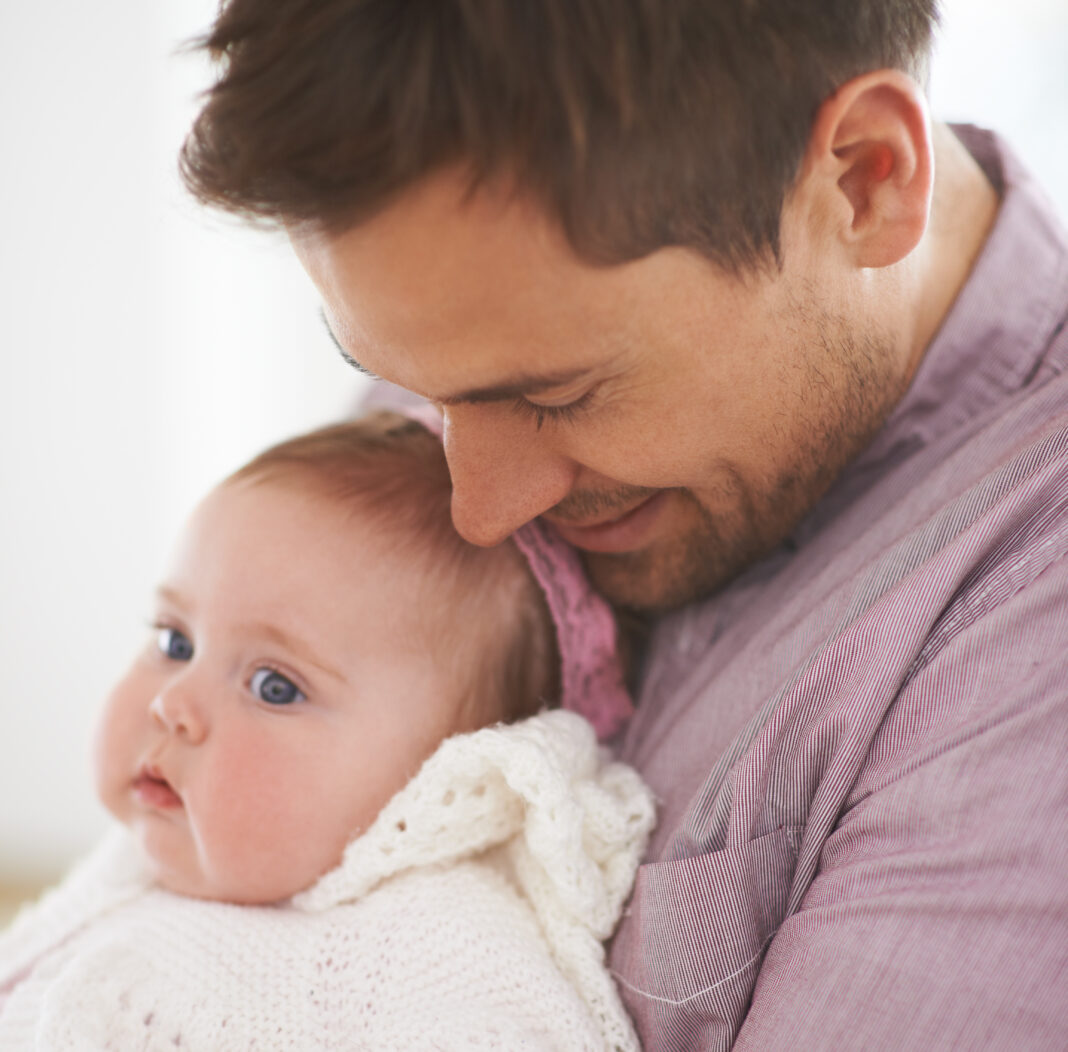Postpartum Support for Dads: How to Help Your Partner (And Yourself) Through This Life-Changing Stage
The postpartum period is not just a transition for new mums—it’s a life-changing time for dads as well. While a mother’s recovery and emotional shifts are often the focus, many fathers also experience their own mix of emotions, ranging from excitement and joy to stress, helplessness, and even postpartum depression.
As a new dad, your support is crucial in helping your partner recover physically and emotionally while also adjusting to your new role as a parent. In this blog, we’ll explore how new dads can support their partners during the postpartum period and also discuss the emotional changes that fathers may experience themselves.

- Understanding What Your Partner Is Going Through
Your partner’s body has just gone through one of the biggest transformations it will ever experience. The physical and emotional recovery process can be overwhelming. Many new mums experience:
✔ Physical exhaustion from childbirth and sleepless nights
✔ Hormonal changes that can lead to mood swings
✔ Feelings of overwhelm due to new responsibilities
✔ Postpartum blues (affecting up to 80% of new mums)
✔ Postpartum depression (PPD) (which affects about 1 in 7 new mothers)
New dads may not always understand why their partner is feeling so emotional or distant, but recognising that these feelings are normal and temporary can help you respond with patience and support.
💡 What You Can Do:
- Be patient with emotional ups and downs—hormonal shifts are real and intense.
- Reassure her that she’s doing a great job—many mums feel like they’re “not good enough.”
- Offer to help in small ways—sometimes, doing simple things like bringing her water while she’s breastfeeding can make a big difference.

- Postpartum Depression in Fathers: Yes, It’s Real
Most people associate postpartum depression with new mums, but fathers can experience it too. Studies show that up to 1 in 10 men develop paternal postpartum depression (PPPD) in the first year after their child’s birth.
Signs of Postpartum Depression in Dads:
🚩 Feeling detached from the baby or partner
🚩 Constant exhaustion, irritability, or anger
🚩 Loss of interest in things that once made you happy
🚩 Anxiety about whether you’re a “good enough” father
🚩 Avoiding responsibilities or withdrawing from family
💡 What You Can Do:
- Talk about how you feel—you don’t have to bottle it up.
- Get support from friends or other dads—you’re not alone in this.
- Seek professional help if needed—depression in men is just as real as in women, and getting help early can make a difference.
- How Dads Can Support Their Partners After Birth
💙 Be Emotionally Present
Even if you don’t have all the answers, just being there for your partner matters. Many mums feel alone in their emotions—let her know she’s not going through this by herself.
✅ Ask “How are you feeling today?” (and really listen)
✅ Hold space for her emotions without trying to “fix” everything
✅ Remind her that she’s doing an amazing job
🍼 Get Involved with Baby Care
The postpartum period is exhausting for both parents, but small efforts go a long way. Helping out with baby care not only supports your partner but also strengthens your bond with your child.
💡 Ways to Help:
✔ Take over diaper changes so she can rest
✔ Do skin-to-skin contact with your baby to bond
✔ Handle night-time bottle feeds (if not exclusively breastfeeding)
✔ Give her a break by taking the baby for a walk or nap
🏡 Help with Household Tasks
Many new mums feel overwhelmed by both baby care and household responsibilities. Helping out—even in small ways—can relieve some of her stress.
💡 How You Can Lighten the Load:
✅ Cook a meal or bring her snacks while she’s feeding the baby
✅ Take care of laundry or dishes
✅ Organise groceries or errands
😴 Encourage Rest & Recovery
Sleep deprivation is one of the hardest parts of the postpartum period. Many new mums feel guilty resting, but they need sleep to heal.
💡 What You Can Do:
✔ Take turns with night shifts if possible
✔ Offer to watch the baby so she can take a nap
✔ Let her rest without feeling guilty
💬 Communicate Openly
Becoming parents is a huge adjustment, and communication is key. Both of you are navigating new emotions, responsibilities, and exhaustion, so check in with each other often.
💡 How to Keep Communication Strong:
✅ Talk about your expectations before the baby arrives
✅ Share your feelings without blaming each other
✅ Be honest if you’re feeling overwhelmed—parenting is a team effort!
- The Power of Reassurance: Let Her Know She’s Doing Great
One of the best things you can do as a partner is offer reassurance. Many new mums feel insecure about their parenting abilities and need to hear that they are doing well.
💡 Simple But Powerful Reassurances:
💙 “You’re an incredible mum.”
💙 “I appreciate everything you’re doing for our baby.”
💙 “You don’t have to do everything alone—I’m here with you.”
- When to Seek Professional Help
If your partner is struggling with persistent sadness, guilt, extreme anxiety, or detachment, she might be experiencing postpartum depression. It’s important to seek help if you notice:
🚩 She withdraws from you or the baby
🚩 She has trouble sleeping, even when exhausted
🚩 She expresses hopelessness or extreme guilt
🚩 She has thoughts of harming herself or the baby (seek immediate help)
Postpartum depression is treatable, and early support can make a big difference. Encourage her to talk to a healthcare professional if needed.
Final Thoughts: Parenthood Is a Team Effort
Bringing a new life into the world is beautiful, but it’s also one of the most challenging transitions for any couple. Dads play an essential role in postpartum recovery—not just by supporting their partner, but by also taking care of their own mental well-being.
If you’re a new dad, remember:
✔ Your role is important.
✔ It’s okay to feel overwhelmed.
✔ Supporting your partner also means taking care of yourself.
🌟 New dads, what has been the most surprising part of the postpartum journey for you? Let’s share experiences and support each other in the comments! 😊💙




